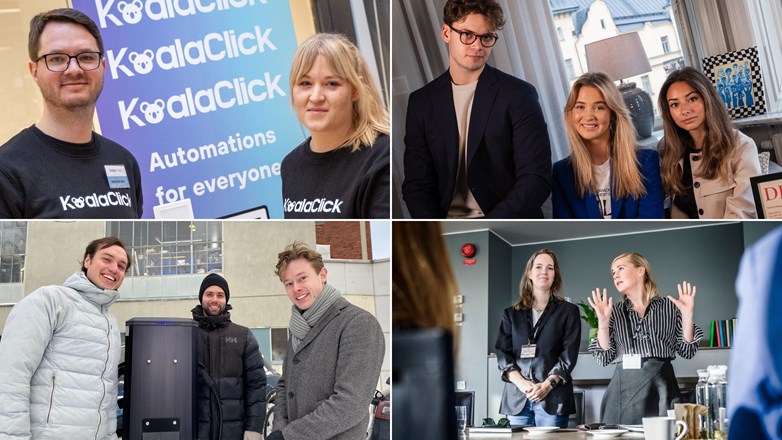SSE Business Lab gears up in sustainability: 10 new companies to be coached
The ten new companies that start at the Stockholm School of Economics incubator today are all expected to have a net positive impact on society and the climate. SSE Business Lab has broadened its admissions requirements and will from now on be coaching all admitted companies in sustainability.
“We’ve already been helping our early-stage companies integrate sustainability into their core business. From now on, we’ll also be supporting our later-stage startups setting clear goals and measuring their impact,” says Andreas Johansson, CEO of SSE Business Lab.
The increased support within sustainability is part of the promise delivered by Johansson when he took over leadership at the incubator last year.
All startups applying to SSE Business Lab already need to demonstrate that their businesses have the potential to contribute to the UN Sustainable Development Goals. The new mandatory sustainability training will help the admitted companies to follow up on the impact they have by quantifying it.

Gain coaching in both sustainability and business development
In addition to the support within sustainability, the now admitted founders will benefit from expert help from experienced business leaders. The new companies are assigned coaches who assist with guidance during the companies’ time in the incubator. One of the new coaches is Estelle Westling, a serial entrepreneur and former founder of the health tech company Grace Health.
“It is through connecting smart business models with the global challenges that we’ll be able to create the profitable and impactful companies of tomorrow. I look forward to supporting the new companies in their growth journeys,” she says.
In addition to receiving coaching, the newly admitted startups gain access to powerful support and partnerships in everything from development to marketing and capital raising. They also gain access to the School’s and SSE Business Lab’s solid network of alumni, business angels, and investment companies.
The following companies have been admitted in this round:
Cay Collective: Marketplace uniting independent creators offering handicrafts with buyers seeking unique and affordable home decor, art, and fashion.
Daifin: Short-term financing solution enabling small and medium-sized enterprises (SME:s) that lack access to trade credit, to obtain goods, sell them, and pay back at a later time.
Dendrite: Allowing AI agents to easily interact with the internet, locally or remotely, reducing token costs and increasing speed.
Disability Rebel: Platform making it easier for people with disabilities to shop for products and services tailored to their needs.
Gradr: Automated AI platform that efficiently generates and automatically evaluates exams.
Hangry People: Sustainable and innovative snacks.
KoalaClick: Automation tool that allows anyone to build, run, and scale their own task automations.
PowerMate: App allowing people to share their electric vehicle chargers, making the transition to electric vehicles easier.
Revive Retail: A B2B plugin solution that promotes circularity by enabling retailers to quickly and effortlessly enter the resell market.
Stealth Mode Company: ???




